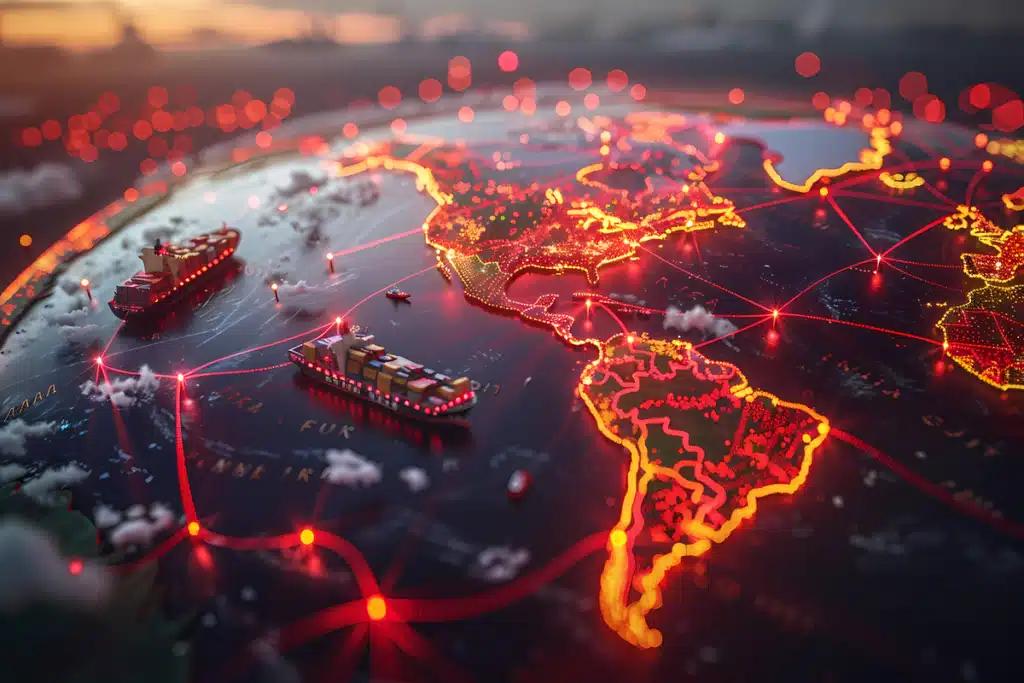Understanding Embargoes: Definition, Types, and Real-World Examples

In the realm of international relations, embargoes often serve as strategic tools to pressure or influence a country’s policies. But what exactly is an embargo, and how does it impact the target country? This article delves into the definition, types, and real-world examples of embargoes in a straightforward and easy-to-understand manner.
What is an Embargo?
An embargo refers to restrictions or prohibitions imposed by one country or international organization on another country, typically in trade, economics, or access to certain resources. The primary objective is to exert pressure on the target country to change its policies or actions in line with the objectives of the imposing party.
A common example is a trade embargo, a ban on importing or exporting certain goods e.g., the economic embargo imposed by the United States on Cuba during the Cold War restricted trade between the two countries, which significantly limited Cuba’s access to international markets.
In essence, embargoes are often utilized as tools of international diplomacy to deliver a strong message without resorting to the use of armed force.

Read More: Cassation is
Types of Embargoes
Embargoes can be categorized into various types based on their objectives and impact. Below are the types of embargoes commonly used in international relations:
- Economic Embargo
This type involves restrictions on trade and economic activities, such as banning the export or import of certain goods, freezing assets, or cutting off a country’s access to international markets. An example of this type is the economic sanctions imposed by the European Union on Russia in response to the conflict in Ukraine. - Arms Embargo
An arms embargo prohibits the sale or transfer of weapons to certain countries, often to prevent conflict or human rights violations. Such embargoes are commonly enforced by international organizations like the United Nations (“UN”) against countries involved in wars or political crises. - Information Embargo
An information embargo restricts a target country’s access to certain types of information, either by banning news dissemination, limiting media coverage, or blocking access to digital platforms. This type is often used to control the spread of information deemed sensitive or detrimental to the interests of the imposing party. - Technology Embargo
In an increasingly digital world, technology embargoes have become more prevalent. This type limits a target country’s access to specific technologies, such as hardware, software, or patents. For example, the restrictions imposed by the United States on a Chinese technology company, Huawei. These restrictions prohibit U.S. companies from supplying Huawei with products developed or manufactured using U.S. technology, significantly impacting Huawei’s technological development and business operations globally. Each type of embargo has a significant impact on the target country and the party imposing it. Understanding the distinctions and characteristics of each type sheds light on how embargoes can be practical yet complex tools in international diplomacy.

Read more: Differences Between Criminal Law and Civil Law
Real-World Examples of Embargoes
Embargoes are often imposed in response to geopolitical issues or violations of international law. One notable example is the economic sanctions placed on Russia due to its prolonged conflict with Ukraine. Since Russia annexed Crimea in 2014, Western countries, including the United States and the European Union, have imposed stringent economic sanctions. These sanctions include trade restrictions, bans on exports of certain goods such as energy technology, and the freezing of assets belonging to Russian individuals and companies abroad. The objective is to exert economic pressure on Russia to cease its aggressive regional actions.
The impact of these embargoes has been substantial. Russia has faced challenges in accessing international markets, advanced technologies, and foreign investment. Meanwhile, the imposing countries have also experienced economic repercussions, particularly European countries that are heavily dependent on Russian energy supplies.
This case demonstrates how embargoes are used as political tools to achieve international stability. While often viewed as non-military solutions, embargoes still have far-reaching economic and social consequences for both the target country and the imposing parties.
With their diverse types and significant impacts, embargoes are strategic measures frequently used to achieve global political objectives or stability. Understanding the concept and implications of each type is a crucial step in comprehending the complexities of international relations.
For more information about embargoes, please feel free to contact us at ADCO Law.
***
About ADCO Law:
ADCO Law is a law firm that offers clients a wide range of integrated legal services, including commercial transactions and corporate disputes in a variety of industry sectors. Over the course of more than a decade, we have grown to understand our clients’ industries and businesses as well as the regulatory aspects. In dealing with business dynamics, we provide comprehensive, solid legal advice and solutions to minimize legal and business risks.
From Upstream to Downstream, We Understand Your Industry. In complex transactions and certain cases, we actively engage with financial, tax, and environmental specialists, accountants, and law firms from various jurisdictions to add value to our clients. Our strong relationships with Government agencies, regulators, associations, and industry stakeholders ensure that our firm has a holistic view of legal matters.
ADCO Law is a Proud Member of the Alliott Global Alliance (AGA) in Indonesia. Founded in 1979, AGA is one of the largest and fastest-growing global multidisciplinary alliances, with 215 member firms in 95 countries. As a law firm, we also believe in regeneration. To stay abreast of business changes and stay relevant, our formation of lawyers is comprised of the top graduates from Indonesian and international law schools.


